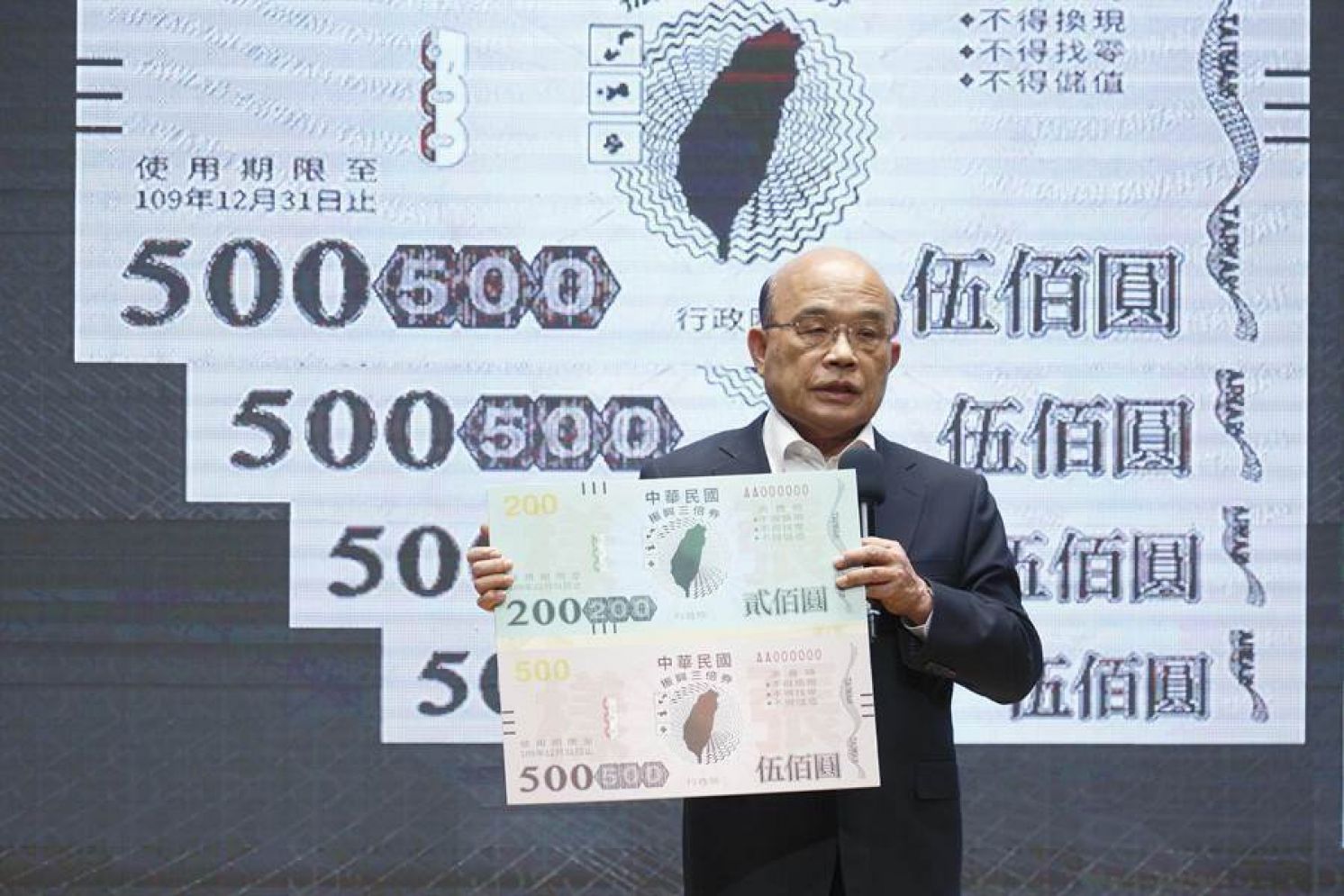
10 Million People Pre-Ordered Taiwan's Stimulus Vouchers
News Compiled and Reported by Taiwan Weekly
As the coronavirus (COVID-19) pandemic eases, the Executive Yuan launched the "Triple Stimulus Vouchers" to revitalize Taiwan’s economy. They will be available from July 15. Public pre-orders became available from July 1, and more than 10 million people submitted orders in just eight days. More than 80 percent of the people chose to collect physical vouchers. As predicted, from July 15, post offices and convenient stores across various regions saw long queues for the vouchers.
Each set of "Triple Stimulus Vouchers" include four NT$500 vouchers (about US$17) and five NT$200 vouchers (about US$6). From July 15 onwards, the public will pay NT$1,000 (about US$34) to receive paper vouchers worth NT$3,000 (about US$101). There are other methods such as tying the e-vouchers to credit cards, mobile payments, and e-payments. With NT$3,000 spending, one will be refunded NT$2,000 (about US$68). Vouchers will be valid until the end of the year.
The "Triple Stimulus Vouchers" triggered the upsurge in pre-orders. Executive Yuan Spokesperson Ding Yi-ming said that the goal of "easy to get and good stimulation" has been achieved but was "slapped in the face" by former President Chen Shui-bian. Chen posted on the social medium "LINE" with the title of "Triple Apologies versus Triple Voucher" stating that instead of issuing "triple vouchers", the government should express "triple apologies" to people. The government should not make simple policy complicated to cause confusion, and not give so little so slow.
Taipei Mayor Ko Wen-je questioned the logic in issuing triple vouchers worth NT$3,000 and asking the public to pay NT$1,000. He bluntly stated, "this is taking off pants to fart." Why not distribute NT$2,000 to people in cash directly?
Originally, the government expected that people’s choice of digital and physical vouchers would be a 50-50 chance. However, more than 80 percent of the people chose to collect physical vouchers, the first batch of paper vouchers are not enough, hence more must be printed. Executive Yuan spokesman Ding Yi-ming said that it was estimated 17 million people would pre-order paper vouchers. The government has spent more than NT$900 million (about US$30.5 million) to print 12 million copies, and will spend another NT$400 million (about US$13.5 million) to NT$500 million (about US$17 million) on reprinting.
Kuomintang (KMT) Legislator Cheng Cheng-chien said that if the government had adopted the “cash distribution” model advocated by the KMT from the outset, it would have saved more than NT$1 billion (about US$34 million) in printing costs, which would be enough to fund a full year’s free school lunch for more than 400,000 disadvantaged children.
After the triple vouchers are launched on July 15, will the public help revitalize the economy with the vouchers as the government expects, or will the vouchers only be used as substitute for cash in daily consumption (or substitutive consumption)? CTI Television visited the streets on July 10 and found that nearly 70 percent of the people only wanted substitutive consumption.
China Times reported that according to an online opinion poll, household consumption accounted for 49 percent, transportation 11 percent, and eating, drinking and pleasure-seeking 19 percent. Three (3) percent want to buy lottery, and 4 percent want to use it on children. Overall, as high as 68 percent of triple vouchers will be used for substitutive consumption such as daily necessities, medical treatment, and transportation, while stimulating "revenge consumption" will be only 19 percent.
The spillover effect originally expected by the government may not be too obvious. Democratic Progressive Party (DPP) Taipei City Councilman Wang Shi-chien even scolded, "Triple vouchers are full of absurdities," so he will not use them.